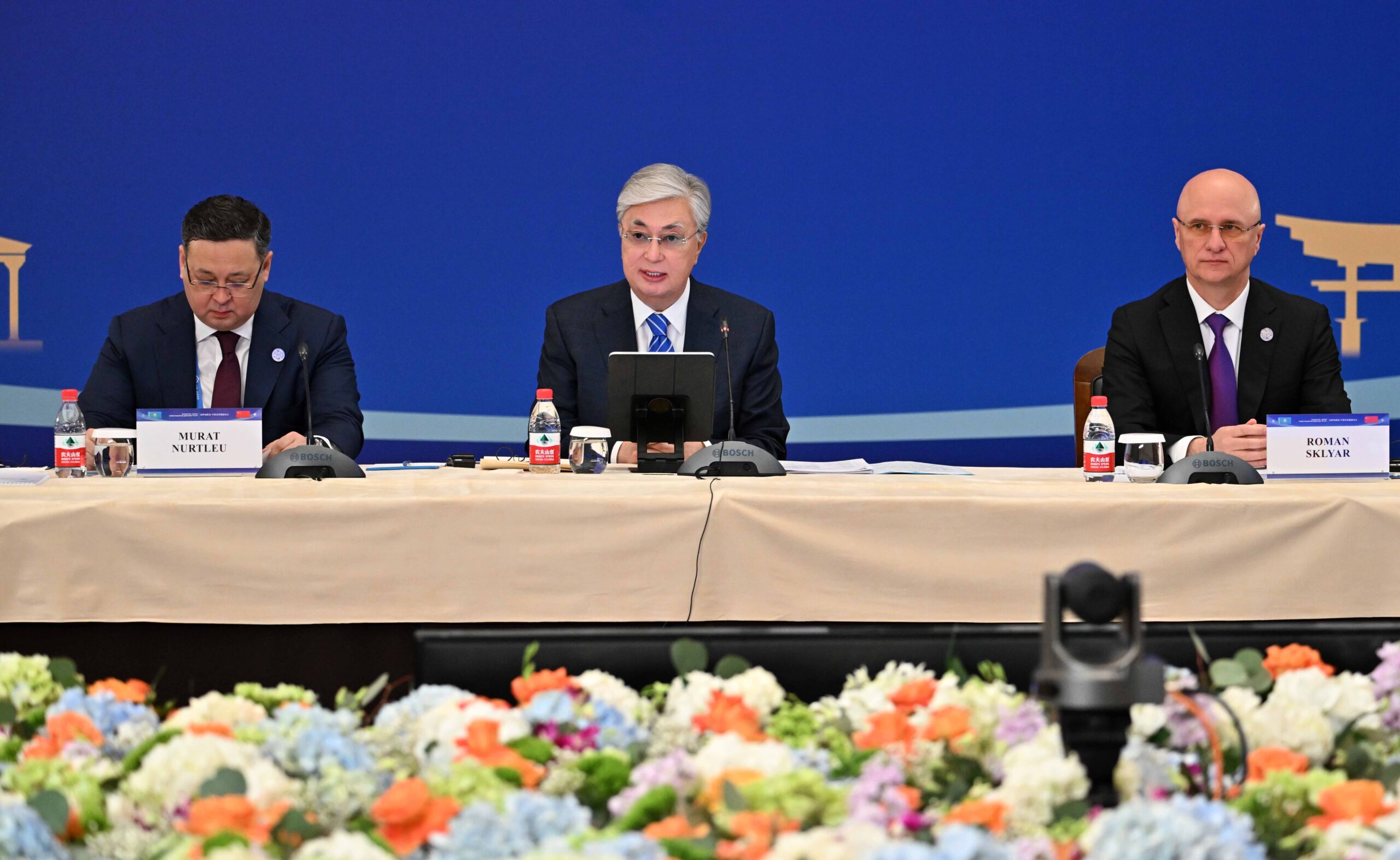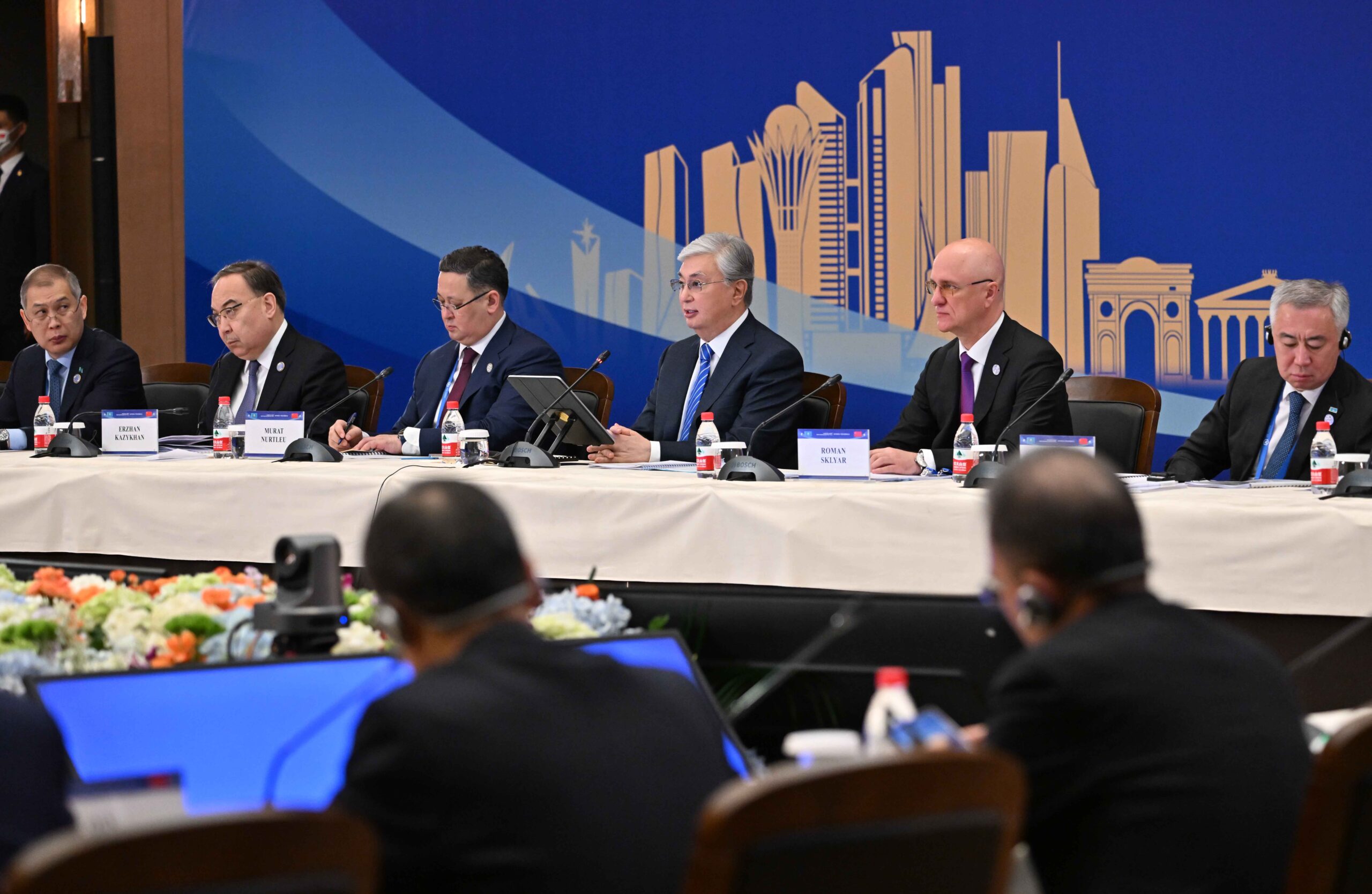ASTANA – Kazakhstan and China signed 47 agreements worth $ 22 billion following the Kazakhstan-China investment roundtable with Chinese officials and business leaders on May 18 in Xian, where President Kassym-Jomart Tokayev highlighted key investment areas, reported the Akorda press service.

Photo credit: Akorda.
Tokayev said that despite the world’s challenging economic landscape, trade and economic relations between Kazakhstan and China continue to develop dynamically.
The volume of bilateral trade hit a record high of $ 31 billion in 2022. China is one of the five biggest investors in the Kazakh economy, with a total investment exceeding $ 23 billion, Tokayev pointed out.
The President stated that despite the presence of major Chinese companies in Kazakhstan, such as China National Petroleum Corporation (CNPC), CITIC, China Nonferrous Metal Industry’s Foreign Engineering and Construction Company (NFC), Sinopec, and Huawei, both countries should expand their cooperation.
He highlighted several promising sectors for cooperation, including the oil and gas industry, which has been the foundation for bilateral relations for many years.

Photo credit: Akorda.
Tokayev discussed plans to expand the Kazakhstan-China oil pipeline to boost oil exports, increase gas processing capacity, expand the gas transmission system, and build a gas processing plant at the Kashagan oilfield with a capacity of four billion cubic meters per year.
Tokayev reiterated Kazakhstan’s ambition to achieve carbon neutrality by 2060 and increase the share of renewable energy sources to 15% by 2030. In this regard, he offered comprehensive support for investments in this industry, notably purchasing electricity at the auction rate for up to 20 years.
Developing industrial cooperation was also a key focus of the meeting, including the implementation of a joint project between KAZ Minerals and NFC to construct a copper smelter. The facility will reduce Kazakhstan’s raw material exports and process the entire volume of copper concentrate produced in the country.
According to Tokayev, Kazakhstan has extensive reserves of rare earth metals, which are in high demand worldwide.

Photo credit: Akorda.
“Considering that China is the largest producer of electric vehicles, cooperation in lithium mining is promising,” said Tokayev.
E-commerce also offers good opportunities to grow mutual trade. Given the Central Asian countries’ competitive position, Tokayev suggested expanding the usage of China’s major marketplaces, which is critical for cooperative product marketing to global markets.
“Kazakhstan intends to create new customs warehouses. In this regard, Kazakhstan offers all partners to place their goods in local warehouses for logistical convenience. This will significantly reduce the time of delivery of goods to consumers from Central Asian countries to China and back,” the President noted.
The agriculture sector is another attractive area for cooperation, according to Tokayev. Recently, the sides agreed to supply one million tons of wheat to China. However, the volume can be increased, he said.
Over the past five years, the export of oilseeds from Kazakhstan to China has grown by 3.5 times, while export of vegetable oil has doubled. Tokayev announced plans to fully supply the Kazakh market with domestic sugar and invited Chinese companies to participate in the development of the sugar industry.
Tokayev also spoke about the importance of developing land transport corridors, highlighting the possibility for Chinese goods to enter the large markets of Western Eurasia through the territory of Kazakhstan.
“Kazakhstan attaches great importance to constructing a Kazakhstan logistics center in the Xian dry port, which will become the main hub for sending direct container trains to Central Asia, Europe, Türkiye, and Iran,” Tokayev said.
According to Tokayev, Kazakhstan plans to launch the Ayagoz-Bakhty railway link in the direction of China and repair the Dostyk-Moiynty railroad section, which will make it possible to annually transport up to 20 million tons of cargo in this direction.
The President said developing the Trans-Caspian International Transport Route is essential for enhancing transit between Europe and Asia, as this is the shortest route from China to Europe. Its length is 2,500 kilometers shorter than the Northern Corridor Transport Network.
Tokayev invited Chinese business executives to expand financial sector cooperation through opportunities offered by the Astana International Financial Center, which has over 1,800 companies from 73 countries, with one-tenth from China. China International Capital Corporation plans to open its regional branch in Kazakhstan.
The investment roundtable was attended by CITIC Group Chairman Zhu Hexin, CNPC Chairman Dai Houliang, Vice President of Asian Infrastructure Investment Bank Ludger Schuknecht, and Chairman of China General Technology Holding (Genertec) Yu Xubo, among other business leaders.
